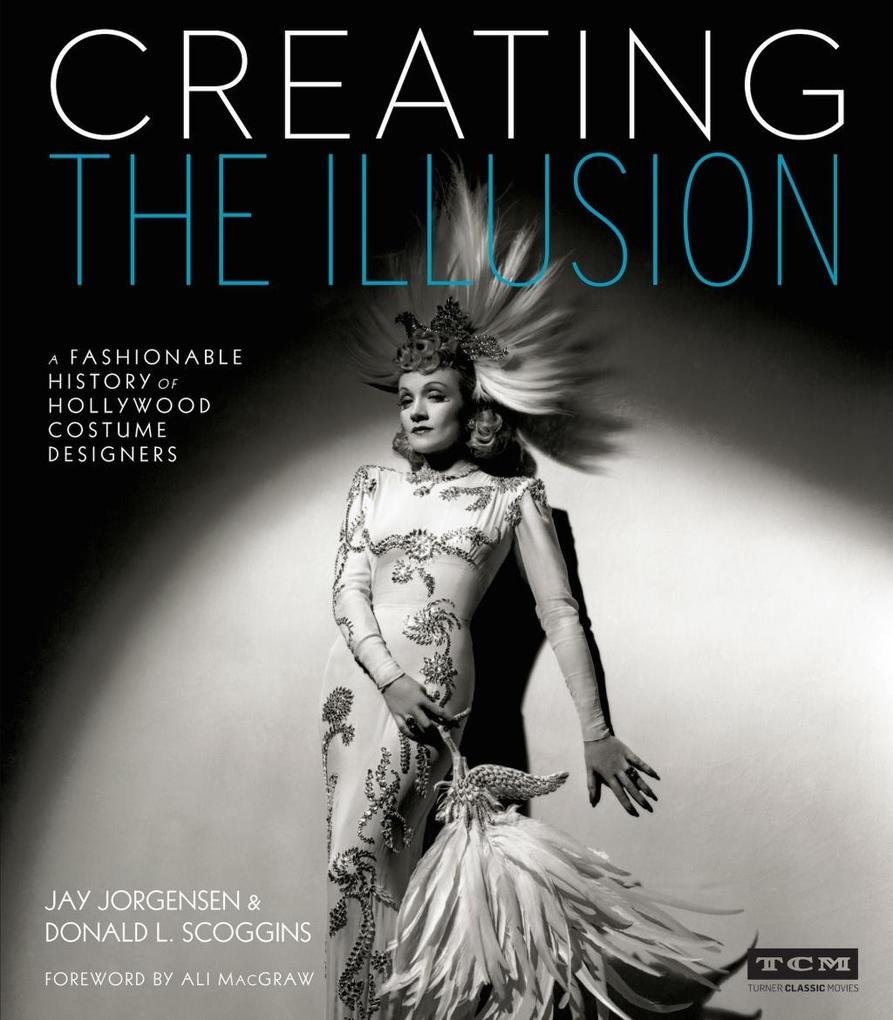
Sofort lieferbar (Download)
Marilyn Monroe made history by standing over a subway grating in a white pleated halter dress designed by William Travilla. Hubert de Givenchy immortalized the Little Black Dress with a single opening scene in Breakfast at Tiffany's. A red nylon jacket signaled to audiences that James Dean was a Rebel Without a Cause. For more than a century, costume designers have left indelible impressions on moviegoers' minds. Yet until now, so little has been known about the designers themselves and their work to complement and enrich stories through fashion.
Creating the Illusion presents the history of fashion on film, showcasing not only classic moments from film favorites, but a host of untold stories about the creative talent working behind the scenes to dress the stars from the silent era to the present day. Among the book's sixty-five designer profiles are Clare West, Howard Greer, Adrian, Walter Plunkett, Travis Banton, Irene, Edith Head, Cecil Beaton, Bob Mackie, and Colleen Atwood. The designers' stories are set against the backdrop of Hollywood: how they collaborated with great movie stars and filmmakers; how they maneuvered within the studio system; and how they came to design clothing that remains iconic decades after its first appearance. The array of films discussed and showcased through photos spans more than one hundred years, from draping Rudolph Valentino in exotic "sheik" dress to the legendary costuming of Gone with the Wind, Alfred Hitchcock thrillers, Bonnie and Clyde, Reservoir Dogs, and beyond.
This gloriously illustrated volume includes candid photos of the designers at work, portraits and wardrobe tests of stars in costume, and designer sketches. Drawing from archival material and dozens of new interviews with award-winning designers, authors Jay Jorgensen and Donald L. Scoggins offer a highly informative, lavish, and entertaining history of Hollywood costume design.
About TCM:
Turner Classic Movies is the definitive resource for the greatest movies of all time. It engages, entertains, and enlightens to show how the entire spectrum of classic movies, movie history, and movie-making touches us all and influences how we think and live today.
Creating the Illusion presents the history of fashion on film, showcasing not only classic moments from film favorites, but a host of untold stories about the creative talent working behind the scenes to dress the stars from the silent era to the present day. Among the book's sixty-five designer profiles are Clare West, Howard Greer, Adrian, Walter Plunkett, Travis Banton, Irene, Edith Head, Cecil Beaton, Bob Mackie, and Colleen Atwood. The designers' stories are set against the backdrop of Hollywood: how they collaborated with great movie stars and filmmakers; how they maneuvered within the studio system; and how they came to design clothing that remains iconic decades after its first appearance. The array of films discussed and showcased through photos spans more than one hundred years, from draping Rudolph Valentino in exotic "sheik" dress to the legendary costuming of Gone with the Wind, Alfred Hitchcock thrillers, Bonnie and Clyde, Reservoir Dogs, and beyond.
This gloriously illustrated volume includes candid photos of the designers at work, portraits and wardrobe tests of stars in costume, and designer sketches. Drawing from archival material and dozens of new interviews with award-winning designers, authors Jay Jorgensen and Donald L. Scoggins offer a highly informative, lavish, and entertaining history of Hollywood costume design.
About TCM:
Turner Classic Movies is the definitive resource for the greatest movies of all time. It engages, entertains, and enlightens to show how the entire spectrum of classic movies, movie history, and movie-making touches us all and influences how we think and live today.
Mehr aus dieser Reihe
Produktdetails
Erscheinungsdatum
06. Oktober 2015
Sprache
englisch
Ausgabe
Digitales Original
Dateigröße
92,21 MB
Reihe
Turner Classic Movies
Autor/Autorin
Jay Jorgensen, Donald L. Scoggins, Turner Classic Movies
Verlag/Hersteller
Kopierschutz
mit Adobe-DRM-Kopierschutz
Family Sharing
Ja
Produktart
EBOOK
Dateiformat
EPUB
ISBN
9780762458073
Entdecken Sie mehr
Bewertungen
0 Bewertungen
Es wurden noch keine Bewertungen abgegeben. Schreiben Sie die erste Bewertung zu "Creating the Illusion" und helfen Sie damit anderen bei der Kaufentscheidung.

































